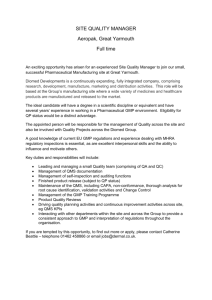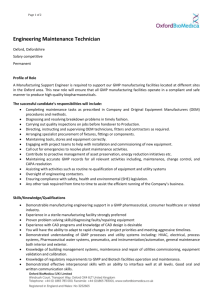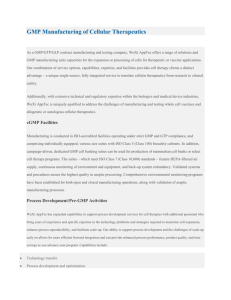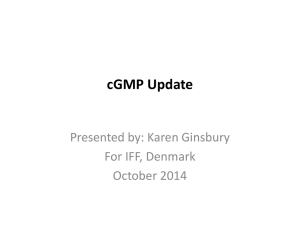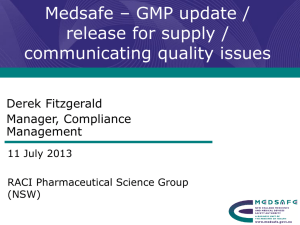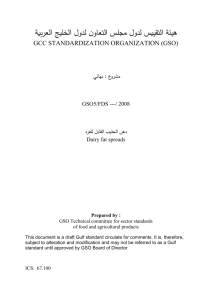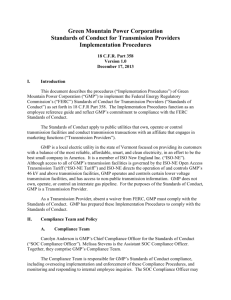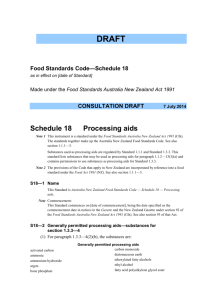GMP is a free library for arbitrary precision arithmetic, operating on
advertisement
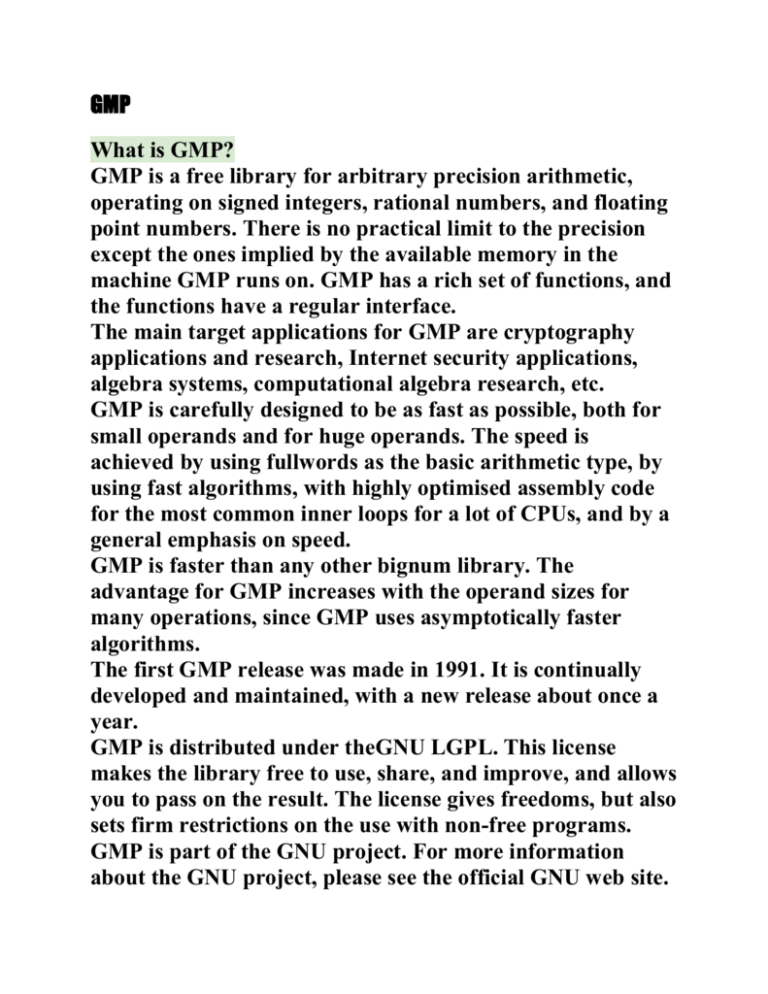
GMP What is GMP? GMP is a free library for arbitrary precision arithmetic, operating on signed integers, rational numbers, and floating point numbers. There is no practical limit to the precision except the ones implied by the available memory in the machine GMP runs on. GMP has a rich set of functions, and the functions have a regular interface. The main target applications for GMP are cryptography applications and research, Internet security applications, algebra systems, computational algebra research, etc. GMP is carefully designed to be as fast as possible, both for small operands and for huge operands. The speed is achieved by using fullwords as the basic arithmetic type, by using fast algorithms, with highly optimised assembly code for the most common inner loops for a lot of CPUs, and by a general emphasis on speed. GMP is faster than any other bignum library. The advantage for GMP increases with the operand sizes for many operations, since GMP uses asymptotically faster algorithms. The first GMP release was made in 1991. It is continually developed and maintained, with a new release about once a year. GMP is distributed under theGNU LGPL. This license makes the library free to use, share, and improve, and allows you to pass on the result. The license gives freedoms, but also sets firm restrictions on the use with non-free programs. GMP is part of the GNU project. For more information about the GNU project, please see the official GNU web site. GMP's main target platforms are Unix-type systems, such as GNU/Linux, Solaris, HP-UX, Mac OS X/Darwin, BSD, AIX, etc. It also is known to work on Windows in both 32-bit and 64-bit mode. GMP is brought to you by a team listed in the manual. GMP is carefully developed and maintained, both technically and legally. We of course inspect and test contributed code carefully, but equally importantly we make sure we have the legal right to distribute the contributions, meaning users can safely use GMP. To achieve this, we will ask contributors to sign paperwork where they allow us to distribute their work. GMP function categories There are several categories of functions in GMP: 1. 2. 3. High-level signed integer arithmetic functions (mpz). There are about 140 arithmetic and logic functions in this category. High-level rational arithmetic functions (mpq). This category consists of about 35 functions, but all signed integer arithmetic functions can be used too, by applying them to the numerator and denominator separately. High-level floating-point arithmetic functions (mpf). This is the GMP function category to use if the C type `double' doesn't give enough precision for an application. There are about 65 functions in this category. 4. 5. 6. C++ class based interface to all of the above. (The C functions and types can of course be used directly from C++ too.) Low-level positive-integer, hard-to-use, very low overhead functions are found in the mpn category. No memory management is performed; the caller must ensure enough space is available for the results. The set of functions is not always regular, nor is the calling interface. These functions accept input arguments in the form of pairs consisting of a pointer to the least significant word, and an integral size telling how many limbs (= words) there are in that argument. The functions in the other categories call mpn for almost all their calculations. Externally supported: High-level floating-point accurately rounding arithmetic functions (mpfr). See the mpfr site for more information. Starting with GMP 4.2, mpfr is released separately from GMP. (New projects should consider using mpfr instead of GMP's own mpf.)
